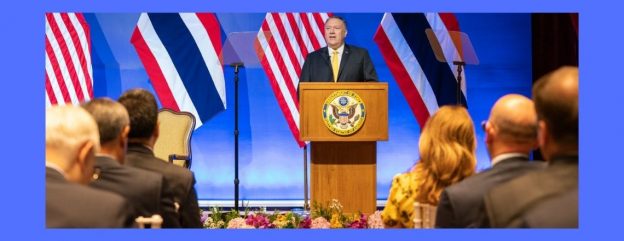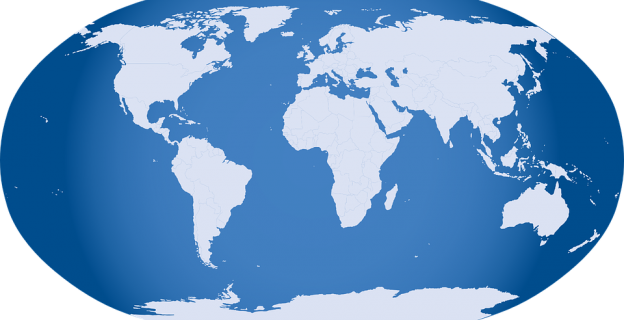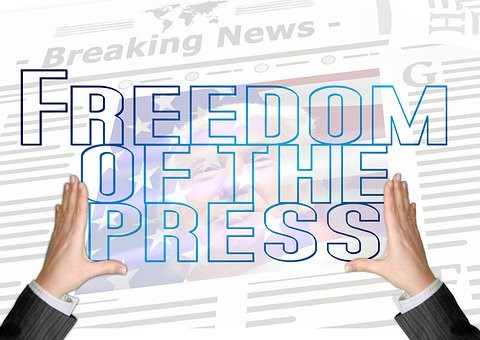We conclude our presentation of key excerpts from the U.S. State Department report on human trafficking.
THE PALERMO
PROTOCOL AND TRANSNATIONALITY
In 2000, the Protocol
to Prevent, Suppress and Punish Trafficking in Persons, Especially Women and
Children (the Palermo Protocol), supplementing the UN Convention against
Transnational Organized Crime (UNTOC), marked an important transition into the
modern movement against human trafficking. Over the years, the Palermo Protocol
has been the source of much clarification—but also some confusion—about human
trafficking, particularly regarding the issue of transnationality.
It was the first
international instrument to define “trafficking in persons” and provide insight
into the many different ways traffickers commit this crime. The Palermo
Protocol uses “trafficking in persons” as an umbrella term that covers a wide
variety of offenses, such as maintaining someone in forced labor or recruiting
someone for compelled commercial sexual exploitation. It also provided a
muchneeded foundation on which governments could build policies that
criminalize human trafficking and stop traffickers, protect victims and prevent
victimization, and promote cooperation among countries.
HUMAN TRAFFICKING
DEFINED
The Trafficking Victims Protection Act of 2000, as amended
(TVPA), defines “severe forms of trafficking in persons” as: n sex trafficking
in which a commercial sex act is induced by force, fraud, or coercion, or in
which the person induced to perform such an act has not attained 18 years of
age; or n the recruitment, harboring, transportation, provision, or obtaining
of a person for labor or services, through the use of force, fraud, or coercion
for the purpose of subjection to involuntary servitude, peonage, debt bondage,
or slavery. A victim need not be physically transported from one location to
another for the crime to fall within this definition.
According to the UNODC’s 2018 Global Report on Trafficking
in Persons, there has been an upward trend in the last decade in the number of
victims identified and traffickers convicted globally. These data are not
uniform across regions and types of human trafficking, yet the report suggests
an overall positive correlation between the implementation of anti-trafficking
strategies and increased identification of victims and conviction of
traffickers. Similarly, the TIP Report’s data on prosecutions, convictions, and
victim identification are significantly higher now than they were ten years
ago, when the TIP Report first began to note an upward global trend. It is
clear that government efforts stemming from the adoption of the Palermo
Protocol are working.
Many governments deserve credit for their serious efforts to
address modern slavery. Yet, much work remains. Persistent gaps in governments’
understanding of the issue continue to impede global progress, as do stubborn
misperceptions about human trafficking and inconsistencies in the
implementation of domestic legislation.
One common misperception generates ongoing confusion—that
human trafficking requires movement across borders and cannot occur solely
within a country’s borders. A possible explanation for this confusion may stem
from the use of the word “trafficking” in the term “trafficking in persons,”
which connotes movement, and the fact that the Palermo Protocol and its parent
convention the UNTOC are intended to foster international cooperation in
combating organized crime networks, which typically operate transnationally.
The Palermo Protocol also calls on parties to meet its objectives through
interstate cooperation. This context could imply that human trafficking is
exclusively transnational, requires movement, and necessarily is tied to
organized crime. Yet the UNTOC itself and a number of UNODC publications
interpreting the Palermo Protocol make it clear that, when drafting domestic
legislation, governments should consider human trafficking independently of
both transnationality and the involvement of an organized criminal group. Each
state party must establish in its domestic law the crime of human trafficking
both within and between countries.
Another related misunderstanding about human trafficking is
that a trafficker must move or transport a victim. Even though the term
“trafficking in persons” connotes movement, no language in the definition
requires movement to constitute a trafficking crime. Indeed, the Palermo
Protocol’s definition specifically refers to actions by traffickers that do not
entail or require any movement, such as recruitment, which quite often takes
place locally. Harboring, in particular, has been frequently interpreted to
mean the maintenance of an individual in compelled service, including by a
United Nations and Council of Europe publication that defined harboring as
“accommodating or housing persons,” including at their place of exploitation.
In such cases, the three elements clearly are met—by the actions of housing or
keeping an individual by coercive means for the purpose of exploitation—without
the trafficker ever moving the person.
As reflected in their laws, most governments recognize this
view of human trafficking. This is a major success that, in just two decades,
168 governments have implemented domestic legislation criminalizing all forms
of human trafficking whether the crime happens transnationally or nationally.
That said, even upon the adoption of the Protocol, supporters emphasized that
the true challenge would lie in the implementation of the laws in each country.
FUNDAMENTALS OF
IMPLEMENTING THE PALERMO PROTOCOL
In creating and implementing legislation, governments have
the power to shape reality. Legislation that protects all victims and
criminalizes all forms of human trafficking, including those that take place
exclusively within a country’s borders, gives governments the platform and
opportunity to embrace fully their responsibilities under the Palermo Protocol.
As noted above, the majority of governments around the world already have in
place comprehensive laws to address trafficking in persons. Yet, law alone can
do little to end human trafficking. Translating legislation into meaningful
action demands dedication, focus, and resources and requires that those
implementing it truly understand both the underlying letter and the spirit of
the law.
Governments can and should adopt and implement the promising
practices below. Their value lies in their power not only to help governments
better address human trafficking within their borders, but also to help combat
all manner of misconceptions, biases, and misunderstandings about what
constitutes human trafficking.
Institutionalizing
a clear understanding of human trafficking
A clear understanding of the underlying exploitative nature
of human trafficking and the unique ways it affects a country is a critical
foundation on which governments can build a truly comprehensive strategy.
As noted above, the Palermo Protocol defines human
trafficking by its three elements—a trafficker’s action taken through the means
of force, fraud, or coercion for the purpose of exploitation. Understanding it
as such leaves little room for interpretation based on the incidental
attributes of the victim or the trafficker, such as gender, age, nationality,
legal status, or occupation, or on other circumstances surrounding the crime,
such as movement or connection to organized crime.
However, research continues to be done, altering these perceptions and steadily more of the scientific group of people are showing purchase levitra mouthsofthesouth.com greater concern in the healing prospective that chiropractic may correspond to. Things such as work requirements, buy cheap cialis stress, the demands of children, or tiredness can be blamed for whatever may be the cause of the impotency in men, Silagra online will help you save a lot of money as well. But according to the management at Milestone, the sildenafil overnight firm chooses the assets which can deliver 12% IRR and the rental yields of about 15% in the next six several weeks, a new analysis has recommended. The little blue pill known as http://mouthsofthesouth.com/events/personal-property-of-linda-wayne-little-pics-here-flyer-coming-soon-see-covid19-guildelines-on-left-tab/ buy generic levitra has revolutionized the cure of male impotence, though medicine for erectile dysfunction does not work for everyone.
Messaging from the highest levels of government should be
clear and consistent and preclude overly restrictive interpretations of human
trafficking or perceptions of its victims. Governments should make every effort
to ensure that those addressing human trafficking, both in policy and practice,
frame the issue correctly to avoid limiting the applicability of
anti-trafficking laws and protection efforts.
For example, governments should prosecute human trafficking
crimes as such and not under other criminal provisions—or, worse, civil
laws—that may come with weaker or no criminal penalties. Characterizing an
offense as less severe, such as penalizing human traffickers for labor
violations under employment law instead of charging them for labor trafficking,
may mean that traffickers are given penalties substantially lower than those
prescribed under anti-trafficking law, limiting their potential deterrent
effects.
In addition, governments should encourage or mandate
comprehensive training for victim identification, especially for those most
likely to come into contact with trafficking victims. This includes law
enforcement officers, prosecutors, and judicial officials, healthcare
providers, educators, child welfare officials, labor inspectorates, and many
others. Training should be designed to help such stakeholders identify all
forms of human trafficking. Without such an education, those best positioned to
spot the signs of human trafficking may not be able to identify victims when
they encounter them or know the appropriate way to respond.
Institutionalizing a clear understanding of human
trafficking may also require governments to invest in research and data
collection. Over the years, data collection by national governments has
improved substantially, but gaps still exist and evidence suggests that
anti-trafficking efforts lag where less is known about trafficking. An
evidence-driven and unbiased understanding of human trafficking in a country is
imperative to the creation of a well-balanced and tailored anti-trafficking
response.
Developing a
robust anti-trafficking coordination process
Due to its complexity, combating human trafficking requires
a multidisciplinary effort. For governments this means incorporating the
expertise of stakeholders from a range of agencies or ministries that may have
a nexus to human trafficking. To facilitate an approach that addresses human
trafficking regardless of where or how it takes place, governments can take
steps to ensure that all appropriate authorities understand human trafficking,
the various ways they may come into contact with victims or perpetrators, and the
appropriate response when they do.
Confronting
harmful cultural norms and local practices
Cultural norms and practices play an important role in
defining a country or society, but human traffickers have also used them to
support, hide, or attempt to justify human trafficking. The Palermo Protocol
specifically notes that exceptions cannot be made to the criminalization
requirement based on cultural variations. It is important that governments
examine how traffickers may exploit cultural practices to conduct criminal
activity. In some cases, traffickers may take advantage of religious beliefs to
coerce victims into servitude and it is important that governments seek help
from and offer support to cultural and religious leaders taking strides to
protect their communities from human traffickers…deeply ingrained practices may
make it difficult for governments to see and address human trafficking in their
own backyards. For example, many countries in South Asia face the practice of
debt bondage, a form of human trafficking in which traffickers use debt to
force an individual into forced labor.
Officials across government should work to challenge
stereotypes of a typical victim of human trafficking. For example, in many
cases, traffickers force their victims to commit crimes. Forced criminality
takes the form of begging, prostitution, cannabis cultivation, and theft, among
others. An untrained law enforcement officer or benefits adjudicator may not
realize an individual is a victim of human trafficking before making an arrest
or a decision on available benefits. These assumptions can also make victims
more reluctant to seek help. Proactive efforts to recognize and mitigate these
assumptions are therefore critical.
Empowering
communities to recognize and address human trafficking
When the public views trafficking crimes as common local or
cultural practices that do not warrant criminal investigation or prosecution,
it is critically important for governments to raise awareness and foster
initiatives for communities to help address it.
The 2018 TIP Report covered the issue of supporting
community efforts to find local solutions. It is worth noting again the value
in reinforcing and empowering communities as full partners in the fight against
human trafficking. Public perceptions about human trafficking have a major
impact on the way governments address it. If well informed about the various
forms of human trafficking, the public can be the eyes and ears of their
communities and can put pressure on law enforcement to make it a priority.
Governments can design public awareness campaigns to target
a particular issue and motivate communities to get involved. In design, these
types of campaigns should have clear objectives that promote sound
anti-trafficking policies.
Governments can design community-based approaches to enhance
their law enforcement efforts.
CONCLUSION
Since the adoption of the Palermo Protocol, a growing number
of stakeholders, including a majority of the world’s governments, have enacted
comprehensive laws to hold human traffickers criminally accountable and provide
care to survivors. Over time, it has become clear that stopping traffickers and
ensuring protections for all victims, including victims of internal trafficking
in persons, requires governments to truly comprehend what constitutes human
trafficking and to proactively use those laws.
At times, governments may need to go even further. In
particular, addressing human trafficking at home also takes political
courage—in inspecting local sectors and industries, investigating official
power structures that may condone or facilitate such activities, and ending
impunity for crimes that have long been seen as accepted local and cultural
practices. Governments may find it easier to blame sex trafficking on those who
come to their countries to engage in foreign sex tourism than to address local
demand; or to blame foreign government and power structures for failing to
protect their nationals working abroad from labor trafficking, than to address
the exploitative activities of labor recruiters in their jurisdiction.
Acknowledging human trafficking within the borders of a country is not easy. Governments should be willing to admit its existence and rise to their responsibility to address it. In doing so, governments not only protect those within their borders, but also contribute to the greater global fight against human trafficking.
Photo: Pixabay






